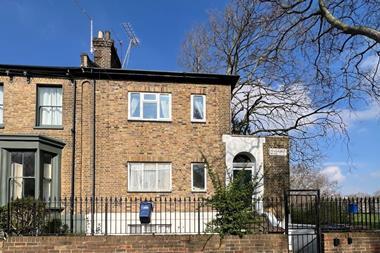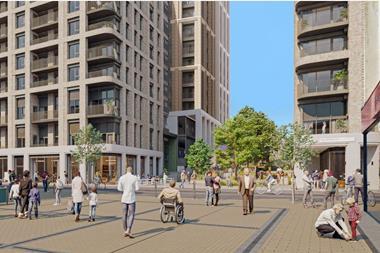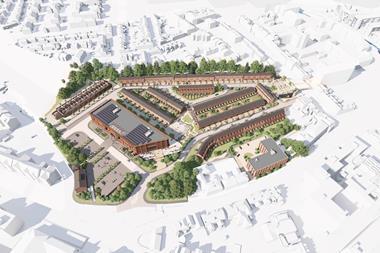As we warned last week, a “massive slowdown” in the residential sector is looming as the deadline for building control surveyors to register with the Building Safety Regulator draws closer.

From 6 April, it will be illegal for building control professionals to practise in England or Wales if they’re not registered. Any residential project not completed before 6 April may experience delays, but the impact on higher-risk buildings from 18m or seven storeys is likely to be particularly acute.
Registration opened in October and, predictably, the volume of applicants has piled up towards the end of the window. Only three organisations are authorised to assess and validate inspectors, and all three are having to process swelling volumes of applicants.
One of the trio, the Building Safety Competence Foundation, warned on 19 February that “many applications are coming in at the last minute”.
There is considerably more at stake than delays to ongoing projects
Industry organisations including RICS have called for an urgent extension to the April deadline, to ease the backlog and reduce the knock-on delays likely to be seen across the whole sector.
It is not simply a shortage of registered inspectors and consequent delays that should raise concerns. Advice issued in mid-February by the Chartered Association of Building Engineers (CABE), one of the three approved bodies, outlined significant worries of a different complexion.
“CABE is aware that the registration process is creating exceptional pressure on building inspectors and building control staff,” it said in a briefing to its members, adding that employers must “put in place measures to support staff through this period to reduce anxiety, and safeguard the mental health, physical health and wellbeing of employees”.
A tight deadline is not the sole source of the mental health fallout. CABE alleges some individuals have been bullied into registering at a grade beyond their abilities. The organisation warned it “has been made aware of instances where CABE members are being put under pressure by their employers to register for a class or scope of registration that is beyond the sensible limits of their experience or competence”.
Registering at a higher grade makes employees more versatile and valuable, by removing the need for more experienced surveyors to supervise the work of less experienced colleagues, particularly where they are overseeing higher-risk residential buildings. Applicants must submit a portfolio of past work and pass an exam to gain senior accreditation, and will be reassessed every four years. But CABE is so concerned about inflated registrations that it has issued guidance on how to blow the whistle.
As CABE makes clear, there is considerably more at stake than delays to ongoing projects. The prospect that some registered inspectors may not be professionally competent is particularly worrying – not only for the safety of building residents, but also in terms of the risks faced by developers.
The Building Safety Act makes developers of new buildings responsible for safety for at least 15 years. As they shoulder that weighty liability, they must feel confident that the registered inspectors signing off building work as safe are genuinely up to the task.





























No comments yet